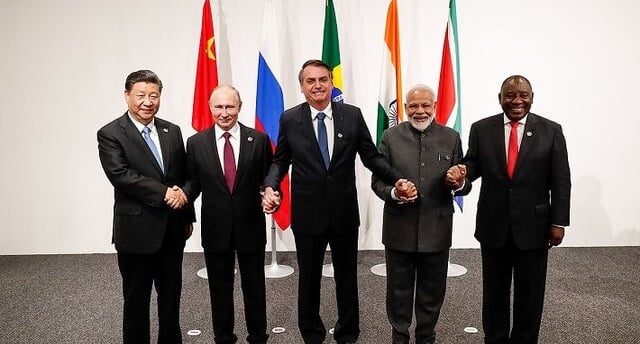The BRICS Nations: Emerging Powers in a Changing World Order
In our latest blog post, 'The BRICS Nations: Emerging Powers in a Changing World Order,' we delve deep into the collective impact of Brazil, Russia, India, China, and South Africa on the global landscape. Explore how these nations are revolutionizing economic frameworks, shifting geopolitical balances, and navigating through challenges unique to each. Whether you're an investor looking to diversify your portfolio or a student of geopolitics, this comprehensive article provides crucial insights into the transformative role these countries play in shaping the 21st-century world order
GENERAL MARKET NEWS
9/6/20232 min read


The acronym "BRICS" stands for Brazil, Russia, India, China, and South Africa, five countries that are noted for their rapidly developing economies and increasing influence on global affairs. Initially coined by economist Jim O'Neill in 2001, the term has since evolved into a formal association. The BRICS nations are known for their significant influence on regional and global affairs, owing to their large populations, fast-growing economies, and substantial natural and human resources.
Economic Impact
Brazil
Brazil, the largest economy in Latin America, is abundant in natural resources and is a major exporter of agricultural products like soybeans, coffee, and orange juice. However, Brazil faces economic challenges, including high inflation rates and political corruption, which have hindered its growth.
Russia
Russia's economy is heavily reliant on its extensive natural resources, particularly oil and natural gas. Despite being hit hard by international sanctions and fluctuating oil prices, Russia is seeking to diversify its economy.
India
Known for its software services and burgeoning tech industry, India's economy is diversifying with strong prospects in manufacturing, healthcare, and renewable energy. However, social inequality and bureaucratic red tape are significant obstacles.
China
China has the second-largest economy in the world, driven by manufacturing and exports. While it has made significant progress in sectors like technology and green energy, China faces challenges, including an aging population and tensions around trade and intellectual property.
South Africa
South Africa has a diverse and richly endowed economy but struggles with significant issues like high unemployment, poverty, and social inequality.
Admission of New Members
BRICS has announced the admission of six new members, more than doubling its size. This is seen as an attempt to reshape the global world order and increase the group's influence. Iran, Saudi Arabia, Egypt, Argentina, The UAE, and Ethiopia will become members of BRICS starting at the beginning of next year. What does this mean for G7? One of the most immediate effects of BRICS' expansion will be the shift in global economic power. The new members will add to BRICS' already considerable economic muscle, potentially rivaling the combined GDP of the G7 nations. This shift could challenge the G7's economic dominance and its ability to set global economic policies.
The BRICS nations are undoubtedly shaping the world in many ways. While their path is fraught with challenges, their collective efforts and individual strengths offer a counter-narrative to Western dominance. As they continue to grow, their influence in global political and economic arenas will likely solidify, making them pivotal players in shaping the future world order.
